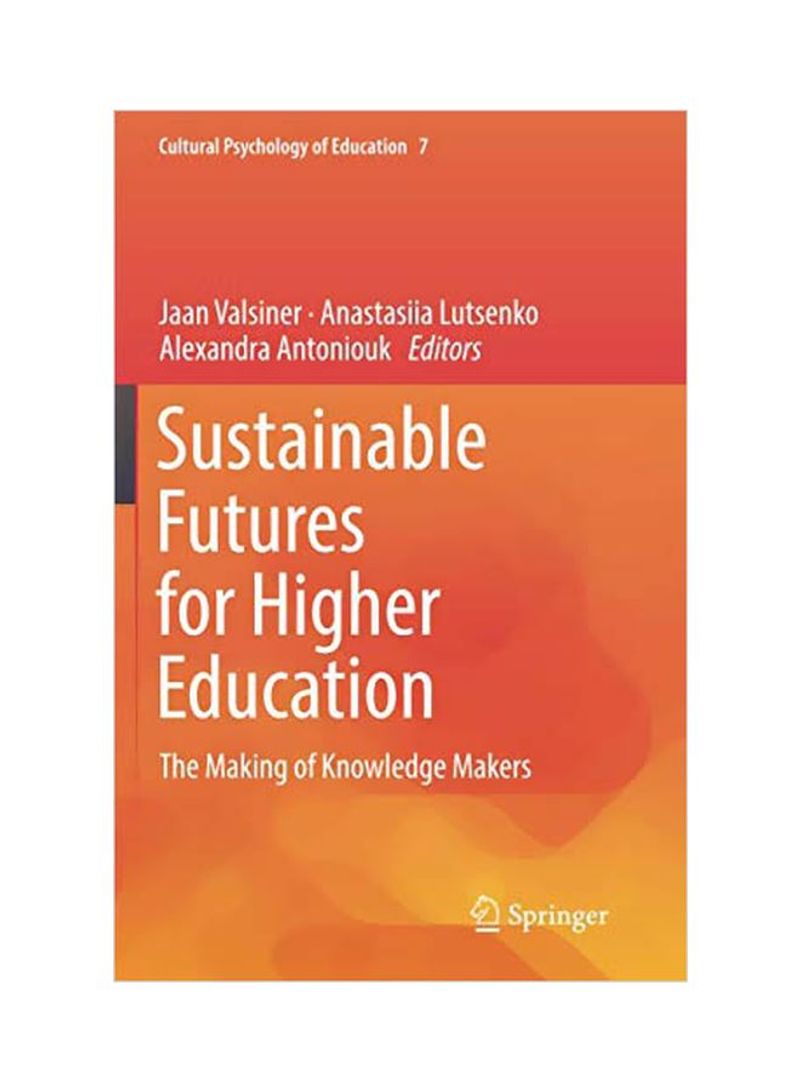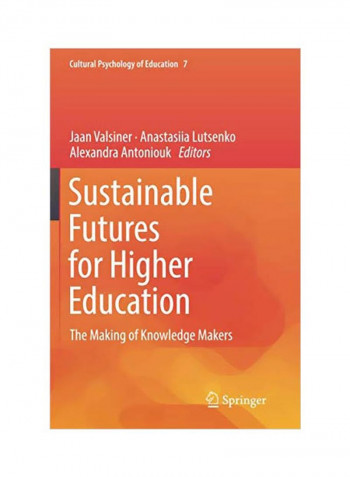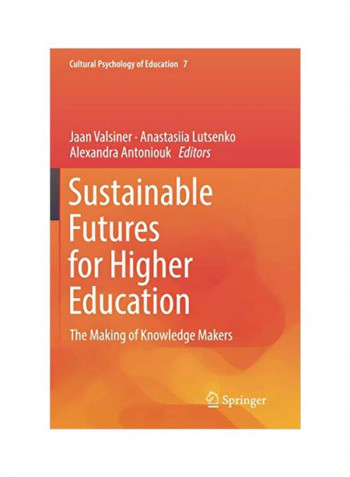Sustainable Futures For Higher Education: The Making Of Knowledge Makers Paperback
Recommend
Sort by
Rating
Date
Specifications
Book Description
This volume addresses the current situation in higher education and what creative action needs to be taken for the future development of the various systems of higher education. Higher education in the 21st centuries is under immense pressure from various sides. First, there is dramatic limitation of funding from public sources and limited and selective funding support from private sources that is re-constructing the landscape of higher education in most societies around the World. Secondly there is the continuous stream of administrative reorganization efforts of political origins (e.g. "the Bologna process") that guide the advancement of higher education in our present time. Increasing privatization of all forms of higher education-from bachelor to doctoral levels-and its corresponding focus on the advancement of the kind of knowledge that has immediate applicability in various spheres of societies leads to the question- what kind of creativity is expected from the new cohorts of students-future makers of knowledge-once the current social re-organization of higher education systems becomes fully established. To address these questions the international, interdisciplinary cast of authors in this volume provides a multitude of possible scenarios for future development of the systems of higher education. This book on "Sustainable Futures of Higher Education" captures the current trends and perspectives of the Knowledge Makers from various nations of the world on meeting and greeting the challenges of globalization and the pressures of the knowledge economy. It makes a strong case for universities of tomorrow sustaining their autonomous thinking and yet nurturing an environment of collaborative partnership with society, corporate and industry to fuel innovations in plenty and continuous supply of new science and technologies. Higher Education has been and shall remain a powerful vehicle of national and global transformation. I see a great value of the publication in impacting the minds of the leaders in higher education around the globe for revitalizing the universities. Professor P. B Sharma, President of Association of Indian Universities, AIU How should the higher education system be in the globalization era? In this book Jaan Valsiner and his colleagues analyze, criticize the existing and propose a new higher education system. When we say "higher education", three different layers are supposed to be there-- the lower, the middle and the higher. The latter has the function of production of new knowledges. Without new knowledge, our societies are never improving. Authors warn commercialized systems such as the "Bologna system" overestimate the homogeneity of education. ""Universities without Borders" would guarantee both diversity and innovation in the higher education systems. Professor Tatsuya Sato, Dean of Research, Ritsumekan University
ISBN-13
9783030071363
Language
English
Publisher
Springer Nature Switzerland AG
Publication Date
25-Jan-19
Number of Pages
340
About the Author
JAAN VALSINER is a cultural psychologist with a consistently developmental axiomatic base that is brought to analyses of any psychological or social phenomena. He is the founding editor (1995) of the Sage journal, Culture & Psychology. He is currently Niels Bohr Professor of Cultural Psychology at Aalborg University, Denmark. He has published and edited around 40 books, the most pertinent of which are The guided mind (Cambridge, Ma.: Harvard University Press, 1998), Culture in minds and societies (New Delhi: Sage, 2007), and Invitation to Cultural Psychology (London: Sage, 2014). He has been awarded the Alexander von Humboldt Prize of 1995 in Germany, and the Hans-Kilian-Preis of 2017, for his interdisciplinary work on human development, and Senior Fulbright Lecturing Award in Brazil 1995-1997. He has been a visiting professor in Brazil, Japan, Australia, Estonia. Germany, Italy, Luxembourg, United Kingdom, and the Netherlands. Since 2017 he is a Foreign Member of the Estonian Academy of Sciences.
Editor 1
Anastasiia Lutsenko
Editor 2
Alexandra Antoniouk
Editor 3
Jaan Valsiner



